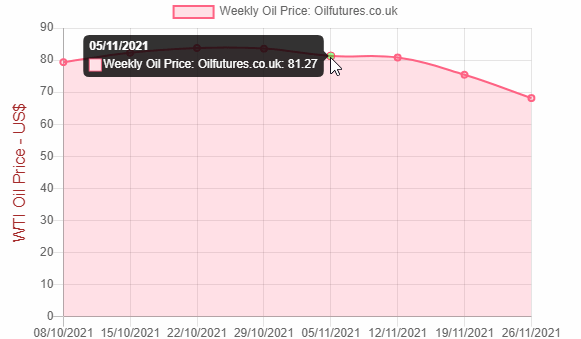The price of crude oil fell precipitously on Friday
when analysts were gauging the combined impact of the joint release of
petroleum reserves and the discovery of new Covid-19 variant in Southern
Africa.
As of 18:00 GMT on Friday, the prices of WTI and
Brent were $68.15 and $72.72 respectively.
When the news broke out on Tuesday about the joint
release of the petroleum reserves by the major global consumers last week, despite
the speculation being in the public domain for days, the crude oil markets defied
the obvious: the price of crude oil did not fall dramatically.
The critics of the Biden administration and those
who harboured the bullish sentiments lost no time in branding the move, at best
politically disastrous and at worst an economic boomerang with a potential to
harm many layers of the US administration.
They were emboldened, perhaps, by the mysterious
silence from the OPEC+ members in the aftermath of the joint release of the
SPRs – the proverbial calm before the storm situation.
As the news regarding the new variant, found in
Southern Africa, grabbed the headlines, it suddenly changed the hypothetical
positions held by both analysts and traders and they, metaphorically, ran
helter-skelter in looking for safer territory to put their money in.
As a result, the price of crude oil plummeted
steeply, leaving the producers in a lurch of growing anxiety – once again. They
have been there before: the previous new variant, the Delta variant, did cause havoc
globally before died down; the oil producers are aware of the short-term impact
on their revenues, especially in the aftermath of a painful recovery.
Of course, the prices will recover in the days ahead
as there is no substitute for fossil fuels, yet in order to get cars, trucks
and even aeroplanes into motion.
When it comes to a steep drop of this kind, however,
recovery has always been slow, as the investors and traders exercise extreme caution
in using their money.
The OPEC+ is meeting, against this backdrop, next
week. There is no doubt that the unexpected development took them by surprise.
Earlier on, some analysts thought the cartel would
hit back by reducing the output in retaliation against the joint release of
SPRs, despite the serious political repercussions associated with such a move.
The OPEC+ was anticipating a drop in demand in the
early part of the next year due to certain circumstances that the group did not
spell out clearly; they used it as an excuse not to increase the production.
In light of the new developments, the organisation
will face a massive challenge in order to respond in a reasonable way without
making matters worse for the consumers in the short run – and for the cartel in
the long run.







